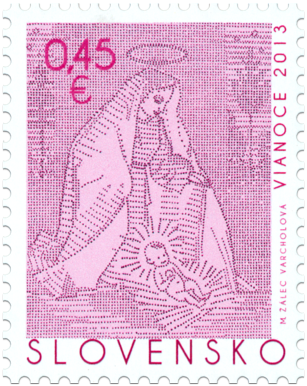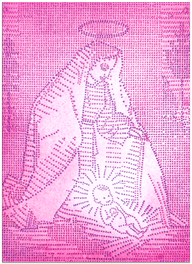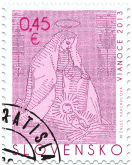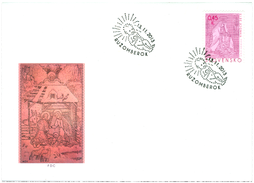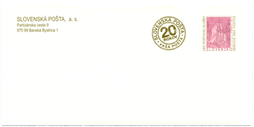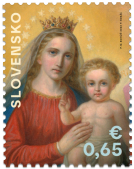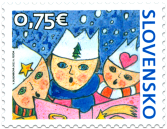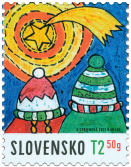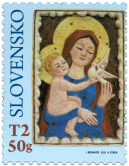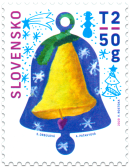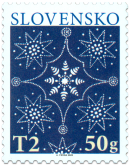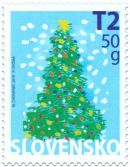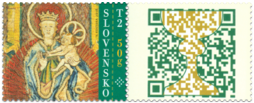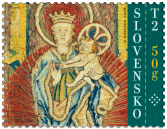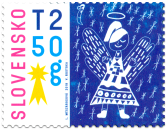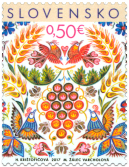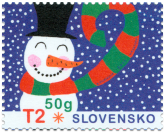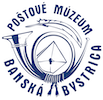551 Date of issue
13.11.2013 Face value
0.45 € Sell price
0.45 €
This year’s issue of the postage stamp Christmas and the First Day Cover are based on two works of one of the most significant Slovak artists of the 20th century, Ľudovít Fulla (1902 – 1980). He was a religious person and thus also Christian iconography, which showed in his works more markedly during the 1940s, played a vital role in his work. Within this period a series of woodcuts depicting biblical, New Testament themes were created: a motif on the stamp comes from the woodcut The Birth (1940), while the imprint uses a motif from an oil painting having the same title and the year of creation as the woodcut. However, even in Fulla’s case, there was no direct proportion or equation between the concepts of faith and creation, his personal inner piousness and artistic style. It might have been just the family deeply rooted Christian ideas and ideals that deepened and multiplied his relation to the Middle Ages and helped him light his fine art sensitivity towards perception of icon painting being a part of fundamental inspiration of his pictorial concept alongside folk work. The main topics he used to return to in his works were New Testament motifs and especially Marian theme. Profound visual and ideological power was put into several pictures bearing religious topics and also into fine art variants of crucifixion of Christ. In their sacral visual hieraticness supported by a ceremonial effect of gold and colourful accord with prevailing light red cinnabar and dull sienna, we can find other top variants of Fulla’s interpretation of western Gothic works as well as of eastern icon painting. Through frontality, statics of the composition, intentionally historicizing concept, the master called for morals and inspirations of the Medieval art. Madonna represented an often repeated topic of his work: from time immemorial Virgin Mary of the Seven Sorrows has been worshipped in Slovakia as a patron and guardian of the country and therefore significant semantic overlaps from “maternal” to “Marian” level of a motif were frequent and natural. Depiction of a mother and a child often moved from a genre to symbolic level: a mother with a child became Madonna, frequently with an attribute “Slovak”, in order to figuratively protect fates not only of individuals but also of the whole nation.
Katarína Bajcurová
© 2024 POFIS - Postal philatelic service. All rights reserved

